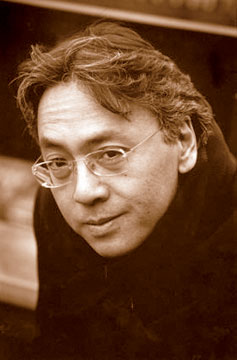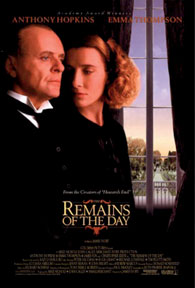|
The noble servant:
Kazuo Ishiguro’s ‘Stevens’ in The Remains of the Day
By Dilshan BOANGE
(Part 1)
 |
|
Kazuo Ishiguro |
The Booker prize winning novel The Remains of the Day by Japanese
born British author Kazuo Ishiguro is a work which can be noted
significantly for its portrayals of the politics of class and society.
The novel which was adapted to film was nominated for eight Academy
awards in 1993, starred Sir Anthony Hopkins in the lead role of Stevens
the Butler.
Ishiguro’s novel has Stevens as the chief protagonist who presents a
first person narrative mode and through whom a scheme of class based
politics is presented that can be analyzed from a multitude of
approaches. Stevens who had been the Butler to Lord Darlington and then
following his employer’s eventual demise is in the employ of an American
by the name of Farraday who purchases ‘Darlington Hall’ (the sprawling
mansion and estate of the British nobleman).
It is from this point of his life that Stevens embarks to tell the
reader the story while he is out on a motoring trip touring the English
countryside. Through recollections captivatingly nostalgic, yet profound
in its discerning of events and people, Stevens presents a wealth of
knowledge and understanding of life, from a point of individuality, and
also commenting on the complexities of the world.
Objective and purpose
The objective of this article series is to provide an exposition of
Stevens and how his character may be analysed taking to account his
perceptions (narrated from his point of view), and what sort of
conceptions they may relate to in terms of institutionalism. An example
of this would be the idea of ‘professionalism’ in relation to his
occupation. Further, what Stevens holds as views related to society and
politics will also be discussed from numerous perspectives and how they
may be read in conjunction with certain theoretical concepts; for
example the ‘centre-periphery’ theory aspect from the discipline of
International Relations and Politics that manifests in Stevens’ notions
of modern English society’s structure in a more ‘progressive’
development.
The approaches to develop an essay on ‘character analysis’ of a work
of fiction that will unfold in this serialised article will no doubt be
of value to those interested in literature with some academic interests.
It is with these intentions in view that the character of Stevens will
be discussed in this five part article which hopes to devise a study of
sorts of Stevens in The Remains of the Day.
Identifying the ‘professional’
Stevens’ diction has been crafted by Ishiguro to a level of
superlative articulateness that denotes an exponential command of
language to render ones thoughts for optimum communicational clarity
through the medium of the spoken word. Stevens presents an example of a
person whose manner of speaking has not only a virtue of perspicuity but
also great eloquence when the occasion suits.
 Attributes of such nature as great command and fluency of a language
can be viewed to denote a certain calibre of education. Yet the story
does not indicate that Stevens had the privilege of any upper crust
education and if that were so then his station (occupation wise) in life
may seem rather ironic. The skill of language that Stevens presents
through his narrative may be answered with some of the great ideals he
holds as the core beliefs forming the personal philosophy he holds of
life, and his own purpose of being in the world. One of the great ideals
that is expounded and propounded with substantiation to the reader by
Stevens is his belief of ‘professionalism’ that is required to be a
‘great Butler’. This line of thought takes a significant ground in
formulating the portrait of Stevens’ mindset, and what he speaks to the
reader as the aspirations he holds based not on whims and fancies but
rational thinking. Attributes of such nature as great command and fluency of a language
can be viewed to denote a certain calibre of education. Yet the story
does not indicate that Stevens had the privilege of any upper crust
education and if that were so then his station (occupation wise) in life
may seem rather ironic. The skill of language that Stevens presents
through his narrative may be answered with some of the great ideals he
holds as the core beliefs forming the personal philosophy he holds of
life, and his own purpose of being in the world. One of the great ideals
that is expounded and propounded with substantiation to the reader by
Stevens is his belief of ‘professionalism’ that is required to be a
‘great Butler’. This line of thought takes a significant ground in
formulating the portrait of Stevens’ mindset, and what he speaks to the
reader as the aspirations he holds based not on whims and fancies but
rational thinking.
When one thinks of the word ‘profession’ (which oft has a tendency to
now expand to encompass many vocations and even avocations) in a Sri
Lankan understanding, one is likely to wonder if the occupation of a
Butler who is very much a servant in a household can be deemed within
that scope. Indeed what does it mean to be a professional? And moreover
what is a ‘profession’ ? The Merriam Webster’s Collegiate Dictionary
(Tenth edition) defines a profession as –“ a calling requiring
specialized knowledge and often long and intensive academic preparation”
and further describes –“ a principal calling, vocation, or employment”
and the term ‘professional’ is defined as –“engaged in one of the
learned professions –characterized by or conforming to the technical or
ethical standards of a profession –exhibiting a courteous,
conscientious, and generally businesslike manner in the workplace”. By
the elaborations of these dictionary definitions one can make a fair
deducing of how definition wise the position of Butler as portrayed by
Stevens may fit in with the more general conception of ‘professional’.
Although Stevens does not expressly state in the course of the
narrative that he is the product of some specialized training that
includes a certain amount of ‘academic’ learning at institutional level
one finds a sense of adherence to standards maintaining and
standardization of the occupations of a household staff by Stevens to
the point it seems to him sacrosanct and not for compromise. It is
without question a position of employment and therefore one of the
fundamental tenets if fulfilled one may observe, and most certainly a
‘vocation.’
Conduct that defines, bespeaks of professionalism
Although there is question as to whether the role of Butler is one
that is established with institutional certification (other than of
course the credential of letters of reference/service by former
employers) the manner and calibre with which Stevens executes his duties
and devotes to the perfection of his performance certainly bespeaks of a
professional mindset and attitude that does his position proud and
accredits it with much admiration.
 |
|
The Remains of
the Day |
The way in which Stevens conducts himself in the course of his work
and conforms thoroughly with the ‘benchmarkers’ mentioned in the
Webster’s dictionary definition –courtesy, conscientiousness,
businesslike manner. And on the matter of academic training or knowledge
development it seems, that on one hand the household of Darlington Hall
seems like an academy for young servants who would be eager to develop
themselves in their training to serve in upperclass households’ domestic
staffs, and rise in designation. And especially under the diligent,
conscientious guidance of one such as Stevens the aspect of ‘skill
development’ is very well achieved to ‘professional’ standards being in
the service of Darlington Hall which thereby seems very much a ground of
training and like of an ‘academy’. The ‘specialized knowledge and skill’
involved in distinguishing a profession from another vocation as per the
dictionary definition seems an area that is very much fulfilled as a
criterion when the vocation of butler is considered according to what
Ishiguro presents through the eyes of Stevens.
The laying out of cutlery and how silverware can be polished to a
sheen that impresses visitors to remark on its exemplariness may seem
trivial to us but yet these are markers that bespeak a high level of
skill and specialized knowledge as indicated in the story. Interviewing
applicants to positions in the household such as housekeeper,
under-butler, maid, footman, and so on also come within the purview of
the butler’s workload and is very much attributable with managerial
functions that require a marked amount of skill and experience. And
arguably it is supposable that one who is not equipped with a sense of
‘professionalism’ cannot effectively function in these capacities,
regardless of whether he has academic accreditation or not.
|

